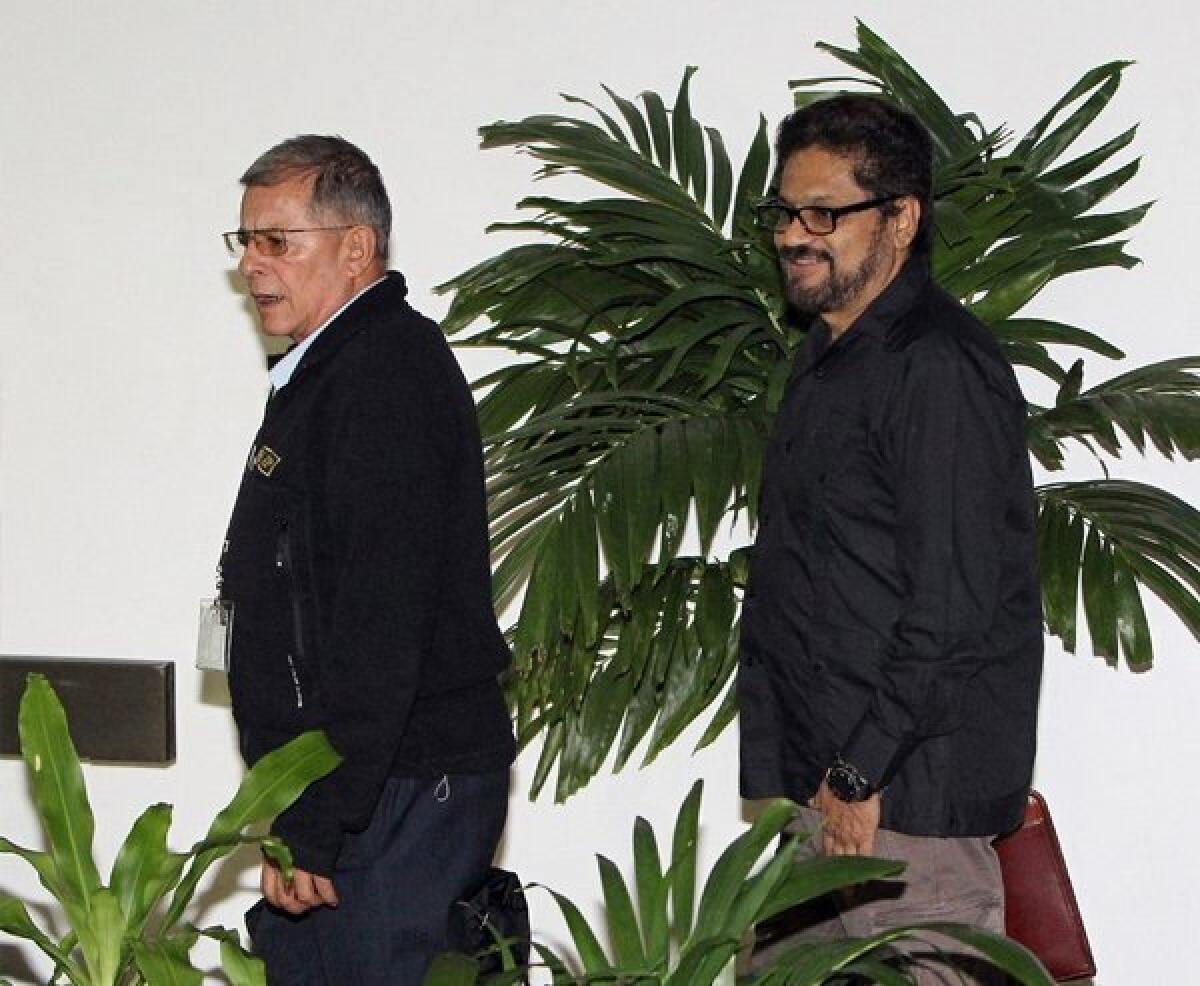Colombian rebels extend an olive branch

- Share via
War-weary Colombians got some good news Monday when that country’s largest rebel group, known as the Revolutionary Armed Forces of Colombia, announced a two-month unilateral cease fire on its website. (Yes, the group has a website.)
The FARC’s decision comes as peace talks between the Marxist rebel group and Colombia’s government got underway in Cuba this week.
But not everyone is optimistic about the negotiations. Some analysts suggest the rebels’ decision to enter into negotiations is really intended to buy the FARC time to regroup, just as it did a decade ago when then-President Andres Pastrana ceded a swath of territory during negotiations. Those efforts failed after the FARC ramped up the kidnapping of civilians and political figures.
But these talks appear to come at a very different moment. Colombia’s armed forces have captured or killed key FARC leaders, weakening it, and public support for the rebels has declined.
Another key difference from past efforts to secure a peace deal is the government’s push to implement much-needed land reforms. President Juan Manuel Santos has backed an ambitious law that calls for restoring more than 4 million acres to those displaced by the internal conflict, as well as providing reparations to victims of the conflict.
Clearly, the talks are still in a nascent stage. The FARC, which has been at war with Colombia’s government for more than 50 years, isn’t promising to lay down arms permanently. But at least it’s willing to stop the shooting, even if for just a while.
ALSO:
Tax reform? We need a revolution
One nation -- but maybe not so indivisible
War in Gaza, and a war of words from Times readers
More to Read
A cure for the common opinion
Get thought-provoking perspectives with our weekly newsletter.
You may occasionally receive promotional content from the Los Angeles Times.






